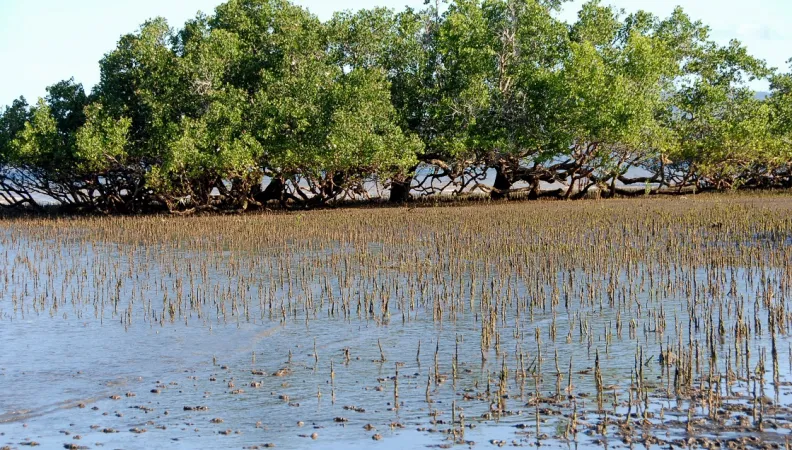Share the page
Nature-Based Solutions: A Global Standard
Published on

Nature-based Solutions may have been proven effective in the fight against climate change, but they remain underused. One reason is there is no normative framework to harmonize practices and provide investors with a reassuring assessment mechanism. A solution is in store: the International Union for Conservation of Nature launched last month, with the support of AFD, a new Global Standard for Nature-based Solutions.
From victim of development to part of the solution
Making full use of nature for the purposes of sustainable innovation. This is the idea behind Nature-based Solutions (NbS) – a concept increasingly valued by governments, local communities, companies and NGOs, even if it has been neglected as a measure to combat the effects of climate change. Long seen as simply a victim of urbanization, nature is our best ally in addressing major challenges such as rising water scarcity and pollution, health risks, food security and the erosion of biological diversity.
Drawing on assessments of “ecosystem” services conducted for more than 20 years, nature-based solutions are based on the idea that the planet has all it needs to heal, and more. A number of experiments have shown that natural resources can be not only restored, but can then serve to protect communities, in terms of sustainable urban development or in the restoration of coastal ecosystems, from the protection of lagoons, coral reefs and mangroves, to the shoring up of marine ecosystems.
IUCN estimates that NbS have the potential to provide up to 37% of what we need to mitigate climate change. They can also reduce the effect of the climate crisis on people and nature by decreasing the risk of disasters and increasing the resilience of local communities, in particular through sustainable water management.
Marine ecosystem restoration in particular is expected to produce considerable benefits. According to the French Assessment of Ecosystems and Ecosystem Services, its immediate cost would require mobilizing between $45 billion and $228 billion worldwide. But the expected long-term benefit, in particular for fishing and tourism, would range between $622 billion and $1,145 billion.
With no common framework to harmonize practices, a common standard is essential for enhancing the scale and impact of nature-based solutions. Such a tool would help funding agencies, policy-makers and the other stakeholders assess the effectiveness of NbS projects as well as their environmental and economic contributions in particular.
An international standard resulting from wide consultation
Launched in July 2020, the IUCN Global Standard for Nature-based Solutions consists of eight criteria and a series of associated indicators, revised every four years. As a central donor, AFD played a key role in defining the NbS standard as part of the France-IUCN Framework Agreement signed in 2005, and after extensive international consultation.
In addition to its financial support for the technical development of the standard, AFD will now be working in the field to promote the implementation of the principles of this standard in the projects it finances. Indeed, the Group has pledged to double it biodiversity funds and raise them to €1 billion by 2025.
This commitment requires integrating NbS into the investment portfolios of all the Group’s sectors of operation, especially the sectors that have the greatest impact on nature: the agriculture sector via the agro-ecological transition, as well as urban development by paying special attention to the issues of water quality, pollution and soil sealing. Increasing biodiversity investments will also require redirecting investments allocated to the financial sector in AFD’s partner countries, for which the NbS standard can become a shared benchmark.
Initiating new forums for dialogue
This new standard will be adopted by development banks, which account for 10% of all international investment, and this will be a structural driver for large-scale redirection of sustainable investment funds. This is why AFD, in addition to its own commitment, has placed nature-based solutions at the center of investment strategies of development banks.
This will be at the top of the agenda of the first Finance in Common Summit, where representatives of more than 450 development banks from all over the world will gather in Paris on 11 and 12 November 2020 at the Paris Peace Forum.
